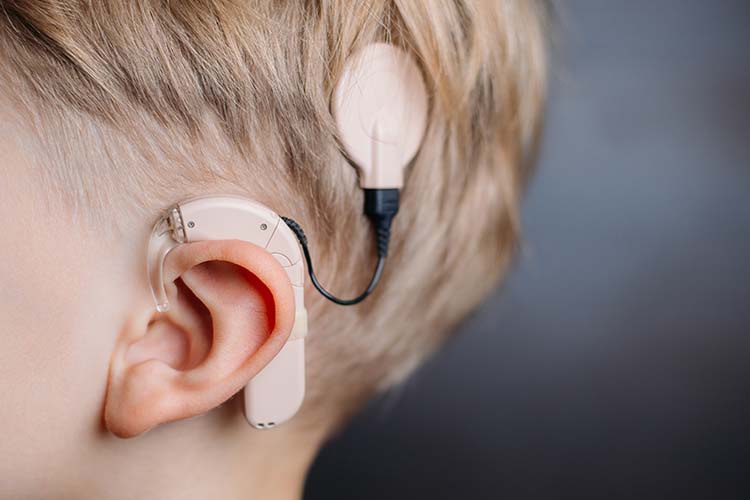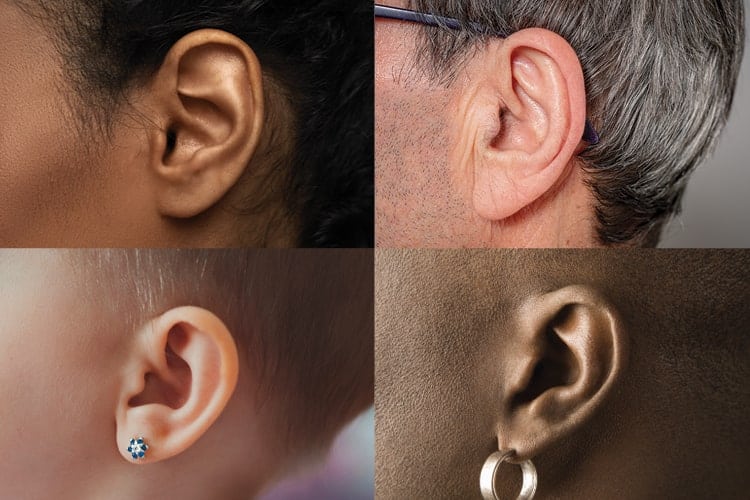Is there a benefit to making connections with other health-care providers in this day and age? Absolutely.
Other health-care providers are the first line of health-care a consumer will visit first. Additionally, those health-care providers have long-standing, established relationships with those patients and their families. Therefore, many patients and families go to audiologists that their physician recommends.
We want to develop strong relationships and maintain those relationships with other clinics that are referring. We also want to provide superior patient satisfaction for patients who are referred. And, most of all, we want to help educate other professions about hearing loss, dizziness, and tinnitus and describe the services we can provide to assist those patients. This helps other providers recognize what we have to offer as a profession that no one else does.
The overall goal of clinical engagement is to increase the knowledge of our peers and decrease uncertainties of patient care.
Use the practical tips and resources below to promote audiology to other health-care providers, as well as access specialty-specific resources to talk with and educate pharmacists, geriatricians, and primary care physicians about hearing and balance care health.
Promote Audiology with Awareness Month Resources
Awareness months can help audiologists educate their audience and other health-care professionals about audiology, hearing and balance care health, prevention, treatment, and management.
Find out if your employment setting or private practice has avenues of distributing messages to different health-care professionals. This could include a website to disseminate information, email blasts, text messages, social media posts, brochures, print and digital advertising, post cards, and more.
Use the resources from the awareness months below to start the conversation. Resources include social media graphics, articles, press release templates, videos, and more.
Reaching Out to Pharmacists
Creating a referral system through pharmacists doesn’t have to be hard. Plan ahead by identifying pharmacists in your community to whom you would like to outreach. Identify just a few key individuals who might expand your network for referrals and help to promote audiology.
Use specialty-specific resources to help educate these individuals and provide resources that will help them speak to their customers or patients.
Reaching Out to Geriatricians and Primary-Care Physicians
Creating a referral system through geriatricians and primary care physicians is also possible. The Academy is dedicated to building resources that you can use to create these networks within your community. The below resources can be used to talk with many different health-care providers.
- Consumer-Friendly Content and Resources
- Hearing Loss Comorbidities: A Childhood Timeline (PDF)
- Hearing Loss Comorbidities: Adults (PDF)
- Centers for Disease Control and Prevention—Diabetes and Hearing Loss
- Guide to Adult Hearing Care
- Hearing-Health-Care-Focused Training for Assisted-Living Staff
Continue to check back as specialty-specific resources are developed by the Academy’s Outreach Committee.
Building Outreach Tools and Executing Successful Engagement Tactics
Outreach tools should be designed with your specific target audience in mind! Encourage your state and local audiology organizations to provide evidence of target clinics and their available services. Identify essential educational components based on your target audience and bring value to your relationship with a provider.
Target Organizations for Outreach
Engage in individual outreach activities with target organizations. See the list of target organizations.
Have ideas on resources you can create yourself? Don’t forget these quick tips:
- Add office locations, phone numbers, fax numbers, and e-mail contacts (if applicable)
- Provide bio information
- List accepted insurances
- Add other information unique to that clinic
Continue to maintain your referral relationships by sharing resources such as:
- Research articles that help reiterate the importance of your office and audiology
- Better hearing institute article (links depression and anxiety to hearing loss)
- NIH article linking diabetes and hearing loss
- Article with hearing loss and speech delay
- Quick check referral guide
- Sample referral sheet; maybe provide a premade template with your office contact information for scheduling
In-Person meetings can be helpful. Set-Up a Lunch and Learn.
- Do your research and prepare yourself for a successful conversation with these tips: 15 Ways to Create a Successful Lunch and Learn.
- Create one-page summaries.
- Provide offices with pamphlets.
- Use eye-catching visuals.
- Don’t overwhelm him or her with too much; keep your content to 15 to 20 minutes of information.
- Do some pre-research and be knowledgeable of their population/audience/patients.
- Consider how your relationship could be mutually beneficial.
- Discuss what barriers he or she could come across.
- Have a learning objective—we can’t discuss it all.
- Leave room and a location for further discussion.
- Send out a follow-up survey.
- Prepare an elevator speech to describe audiology in general or to discuss a specific aspect of your audiology practice. Have this speech ready to use when the opportunity presents itself.
- Use the “What Is an Audiologist?” fact sheet, share a Myth vs. Fact Poster, or schedule a brown-bag lunch or meeting with our Informational PowerPoints:
You can consider a virtual meeting if an in-person conversation is not convenient.
Audiology Today Articles and Guidelines
- It’s Called “GRECC,” Have you Heard of It?
- Private Practice in a Time of Big Health
- Interprofessional Care in Patients Post-Concussion: Vision and Vestibular Considerations
- Accessibility and Affordability of Hearing Care for Adult Consumers
- The Audiologist: A Partner Within a Health-Care Team
- Cognitive-Screening Practices Among Audiologists
- Hearing Screenings for Older Adults: A Wise Investment?
- Strategies for Increasing Medical Community Awareness of Audiology: A Call to Action!





